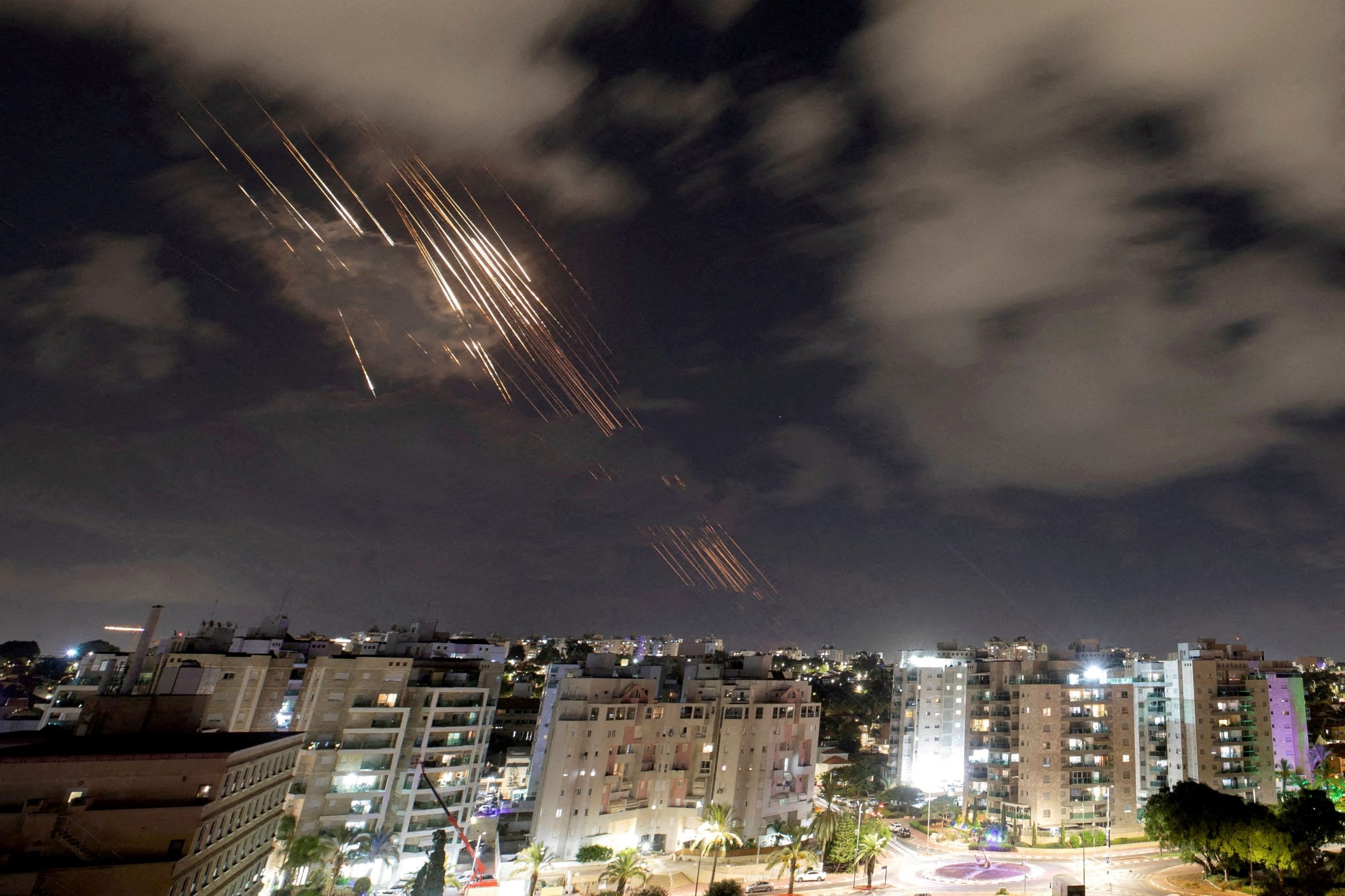Hamas fired rockets at Tel Aviv, forcing Israelis into bomb shelters on the anniversary of the militant group’s attacks that sparked a multifront war in the Middle East.
The rocket fire on Monday came hours after the Israeli military said it launched strikes in the Gaza Strip to thwart such an attack. Israelis are attending ceremonies Monday memorializing a year since Hamas-led militants mounted an assault that killed 1,200 and kidnapped around 250 people, with many still held in Gaza.
Israel in recent weeks had shifted focus from Gaza to Lebanon, where the Israeli military last week launched a ground offensive against Hezbollah, the Lebanese militia that has supported Hamas with rocket fire against communities in northern Israel.
The Israeli military said Monday it had deployed a new division of soldiers in the ground offensive inside Lebanon. The fresh troops marked an increase in personnel but not an expansion of the goals of the operation or a deepening of Israel’s presence inside Lebanon, a military spokesman said. The aim of the operation is to destroy tunnels, weapons caches and rocket launchpads in areas on the border that could be used in an attack against Israeli communities.
Hamas said it fired the rockets on Israel’s commercial hub as part of its ongoing war with Israel. The Israeli military said five projectiles fell in central Israel and initial reports from Israeli medics said two people were lightly injured in the attack. Israeli warplanes later hit sites in southern Gaza from which Hamas fired the rockets, the Israeli military said. A missile was fired from Yemen toward central Israel and intercepted by Israel’s air force, said the Israeli military, which is reviewing the incident.
While Hamas has regularly fired rockets at Israeli towns and cities since the war began in Gaza on Oct. 7 last year, the assaults have become infrequent in recent months as the Israeli military has disrupted the U.S.-designated terrorist group’s military operations inside the strip.
The rocket fire is yet another sign of the difficult task Israel faces in turning tactical military gains in Gaza into a victory that provides long-term security for Israelis.
The Israeli military earlier on Monday said it had bombed launch sites for Hamas rockets to thwart an immediate attack and a day earlier reopened an offensive in northern Gaza to combat Hamas militants who have resurfaced there.
“We remember our dead, our hostages, whom we are obligated to bring back, and our heroes who fell in defense of the homeland and the nation,” Israeli Prime Minister Benjamin Netanyahu said, marking the anniversary of the Oct. 7 attacks. “We went through a terrible massacre a year ago.”
Israel’s war against Hamas in Gaza has expanded over the year to include Hezbollah, Yemen’s Houthi rebels and Iran, which backs all three militias.
Israel is fighting on the ground in Gaza and Lebanon, and has launched airstrikes targeting Houthis in Yemen and on Iranian weapons shipments bound for Hezbollah through Syria. The Israeli military is also battling Palestinian militants in the Israeli-controlled West Bank.
Israel is also considering how to retaliate against Iran for launching roughly 180 ballistic missiles last week on Israeli territory—a response that risks metastasizing an already-complex conflict.
Israel is consulting with the U.S. on how to respond to the Iranian attack, which American forces helped defend. Israeli Defense Minister Yoav Gallant is expected to visit Washington this week to meet with Defense Secretary Lloyd Austin , according to an Israeli security official. The top U.S. commander for the Middle East, Army Gen. Erik Kurilla , visited Israel on Sunday to discuss Iran and Hezbollah with Israeli military officials.
President Biden shared his condolences with Israel on the Oct. 7 anniversary through a call with Israeli President Isaac Herzog on Monday, reiterating the U.S. commitment to Israel’s safety and its right to defend itself from attacks by Iran and Iran-backed militants. He also expressed “deep sadness for the loss of innocent life in Gaza and the ongoing suffering of Palestinian civilians as a result of the war that Hamas unleashed.”
A year on from Hamas’s Oct. 7 attacks, the war in Gaza has decimated buildings and civilian infrastructure in the strip. Most of Gaza’s 2.2 million people have been displaced by the fighting, which has caused the deaths of more than 41,000 people, according to health authorities there, who don’t say how many were combatants.
In recent weeks, an intensified Israeli air operation against Hezbollah also has caused hundreds of thousands of people across Lebanon to flee. Israel has launched airstrikes against 3,000 targets, including military sites and Hezbollah officials. More than 1,000 people have been killed since September, according to Lebanon’s Health Ministry.
Hezbollah began firing on Israel on Oct. 8 last year in support of Hamas. Since fighting began, Israel says about 13,200 projectiles have been fired toward its territory from Gaza and 12,400 from Lebanon. It has also faced hundreds of missiles and rockets fired from Iran and Iran-backed militias in Syria and Yemen.
Israel’s war goals expanded in recent weeks beyond destroying Hamas’s military capabilities to also include returning tens of thousands of displaced Israelis to their homes in the north.
Israelis began holding Oct. 7 memorials at around dawn Monday—about the time when Hamas first began its assault on Israeli communities near the Gaza border—and ceremonies were planned throughout the day. One of the memorials was for the victims at the Tribe of Nova music festival, where militants killed more than 250 people.
Israel says that of the 250 hostages taken by Hamas on Oct. 7, 97 remain in captivity, most of them Israeli, including dual nationals. That includes many whom Israel has concluded are dead.



